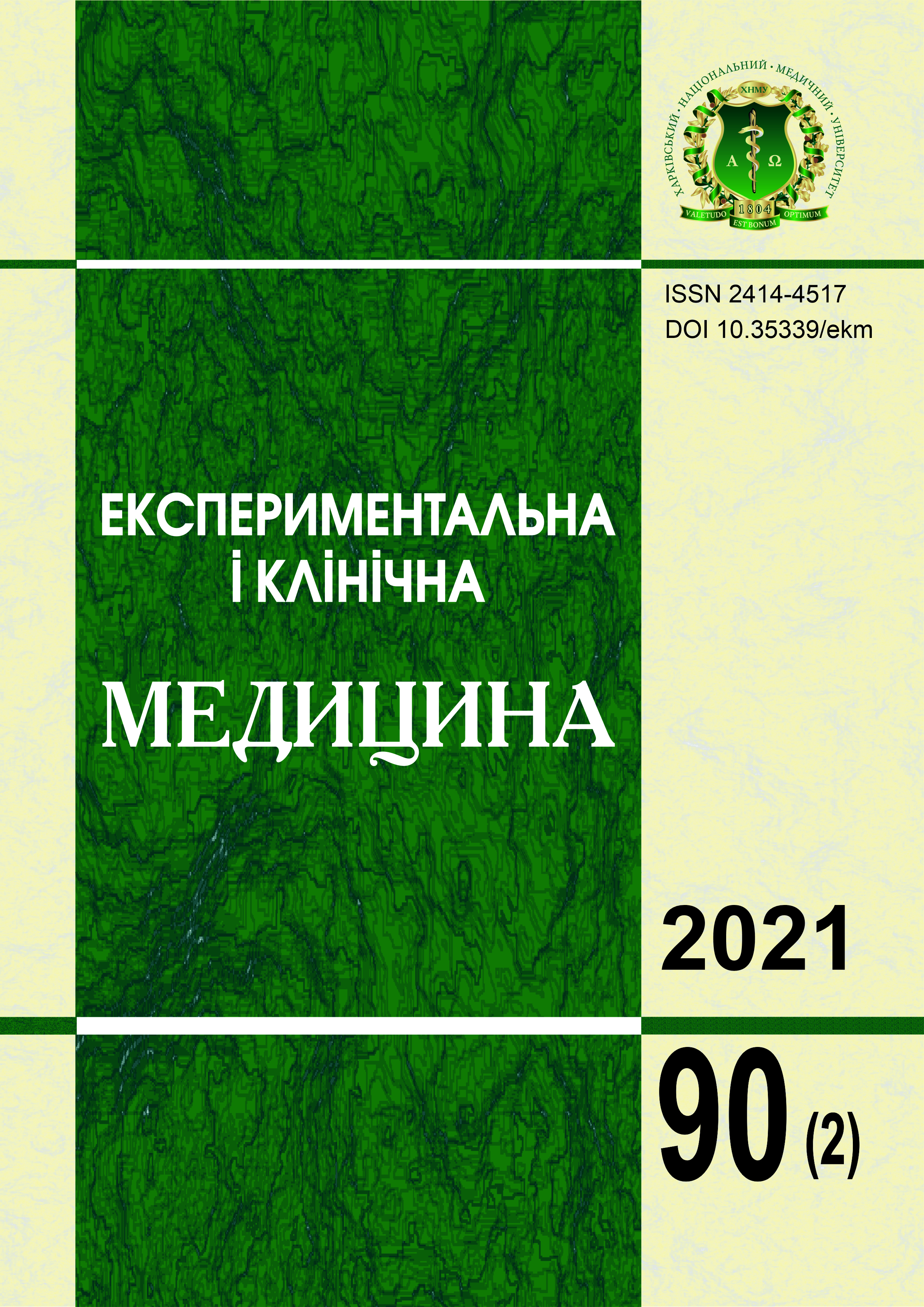Abstract
The quality of the provision of palliative and hospice care (PHC) depends on regulatory, legal and logistical support, the practice of implementing laws, and the support of society. The need for PHC is growing both worldwide and in Ukraine, which is associated with the aging of the population and global medical advances, thanks to which people live to a greater age and continue to live even with serious diseases and severe disabilities. Patients with incurable diseases most often need analgesia, which in low- and middle-income countries the population either does not receive at all, or has limited access to narcotic analgesics. The task of the PHC organization corresponds to the European integration obligations of Ukraine at a high level, and is in the sphere of responsibility of the Ministry of Health. The insufficient level of development of the national PHC system depends on imperfect legislation, non-implementation of adopted laws, lack of public results of calculating the need for PHC among adults and children. The system of training medical workers to work in hospices and palliative care departments, which concerns both doctors and nurses, also needs improvement. The routes of movement of palliative patients during the provision of assistance to them in the institutions of the health care system require public discussion. Instructions regarding the movement of these patients should be understandable to a doctor of any specialty, and contain step-by-step algorithms of actions. The practice of euthanasia, which is not allowed in Ukraine, is important for palliative patients. The PHC system should become one of the key components of the health care system, provided at the place of residence of patients (in hospices and palliative departments of hospitals) in the area where they live, or in "hospices at home". The development of the national PHC system, in which all known shortcomings will be taken into account and corrected, will be able to reduce the level of suffering of terminally ill patients and their relatives, and ensure their standard of living at the average European level.
Keywords: PHC, need for medical assistance, health care financing.
References
Palliative care. Key facts. WHO, 5 Aug 2020. Available at: https://www.who.int/ru/news-room/fact-sheets/detail/palliative-care
Assessing national capacity for the prevention and control of noncommunicable diseases: report of the 2019 global survey. Geneva: World Health Organization; 2020. 101 p. Available at: https://www.who.int/publications/i/item/9789240002319
International Narcotics Control Board (UN). Precursors and Chemicals Frequently Used in the Illicit Manufacture of Narcotic Drugs and Psychotropic Substances: Reports E/INCB/2019/1-4 for 2019. Vienna: UN, 2020. 502 p. Available at: https://www.incb.org/documents/Narcotic-Drugs/Technical-Publications/2019/Narcotic_Drugs_Technical_Publication_2019_web.pdf [in English, French and Spanish].
WHO guidelines for the pharmacological and radiotherapeutic management of cancer pain in adults and adolescents. Geneva: World Health Organization; 2018. 142 р. Available at: https://www.who.int/publications/i/item/9789241550390
Babiychuk OM. Аdministrative-legal regulation and legal aspects of palliative and hospice medicine. Administrative Law and Process (ISSN 2227-796X). 2014;4(10):132-40. Available at: http://www.library.univ.kiev.ua/ukr/host/viking/db/ftp/univ/apip/apip_2014_10.pdf
Shevchenko AS. The right to life: medical aspects. Bull KhRIPHS. 2017;80(6):24-43. DOI: 10.5281/zenodo.3951362.
Shevchenko AS, Kuts YuV, Gavrylova SA, Gavrylov EV. Legislative, historical and practical aspects of phenomena that potentially violate the right to life. Bull KhRIPHS. 2020;93(1):20-7. DOI: 10.5281/zenodo.3960410 [In Ukrainian].
Kalashlinska MV. The legal and political problems of hospice care for patients with incurable disease in Ukraine. Bulletin of the Vasyl' Stus Donetsk National University. Series Political sciences. 2019;(4):73-8. DOI: 10.31558/2617‐0248.2019.4.12. [In Ukrainian].
Kubarieva IV, Kotvitska AA, Beketova MS. Analysis of regulatory and legal regulation of palliative care in Ukraine. ScienceRise: Pharmaceutical Science. 2017;4(8):27-31. DOI: 10.15587/2519-4852.2017.108902. [in Ukrainian].
Order of the Ministry of Health of Ukraine No.1308 on 4 Jun 2020 "On improving the organization of palliative care in Ukraine." Legislation of Ukraine. Verkhovna Rada (Parliament) of Ukraine. In force on 20 Jun 2021. Available at: https://zakon.rada.gov.ua/laws/show/z0609-20#n7 [in Ukrainian].
National Health Service of Ukraine. March 27, 2021. Available at: https://is.gd/6HzYwu [in Ukrainian].
Huzii O. Patient-oriented statistics and palliative care in Ukraine. Ukrainian medical journal. Available at: https://api.umj.com.ua/wp/wp-content/uploads/2017/08/Paliativ.pdf [in Ukrainian].
Kurnytska HM. Strategy for the development of palliative care in Ukraine up to 2027. Nursing. 2018;(2):42-5. DOI: 10.11603/2411-1597.2018.2.9166. [In Ukrainian].
Bilyk LV. Professional training of medical students to nursing care for patients with chronic pain syndrome. Naukowyi chasopys. National Pedagogical Dragomanov University. Series 5. Pedagogical sciences: reality and perspectives. 2018;1(60):46-50. [in Ukrainian].
Report on the progress and results of the implementation of the Program of the Cabinet of Ministers of Ukraine in 2019. Government portal (the Unified Web-portal of the executive authorities of Ukraine) [Internet]. Available at: https://www.kmu.gov.ua/storage/app/sites/1/zviti-pro-vikonannya/zvit2019r.pdf [Accessed 20 Jun 2021].

